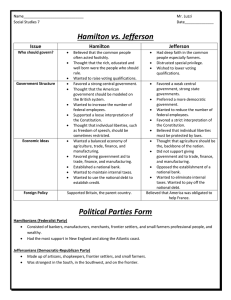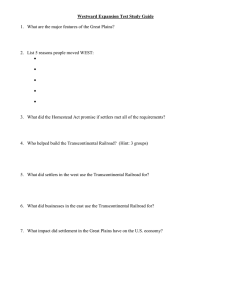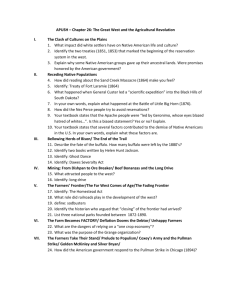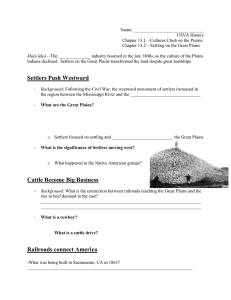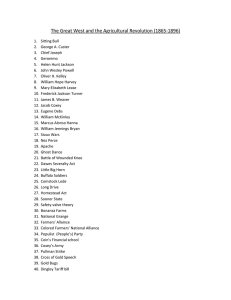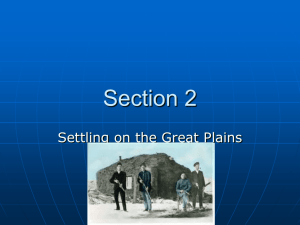Western Frontier
advertisement
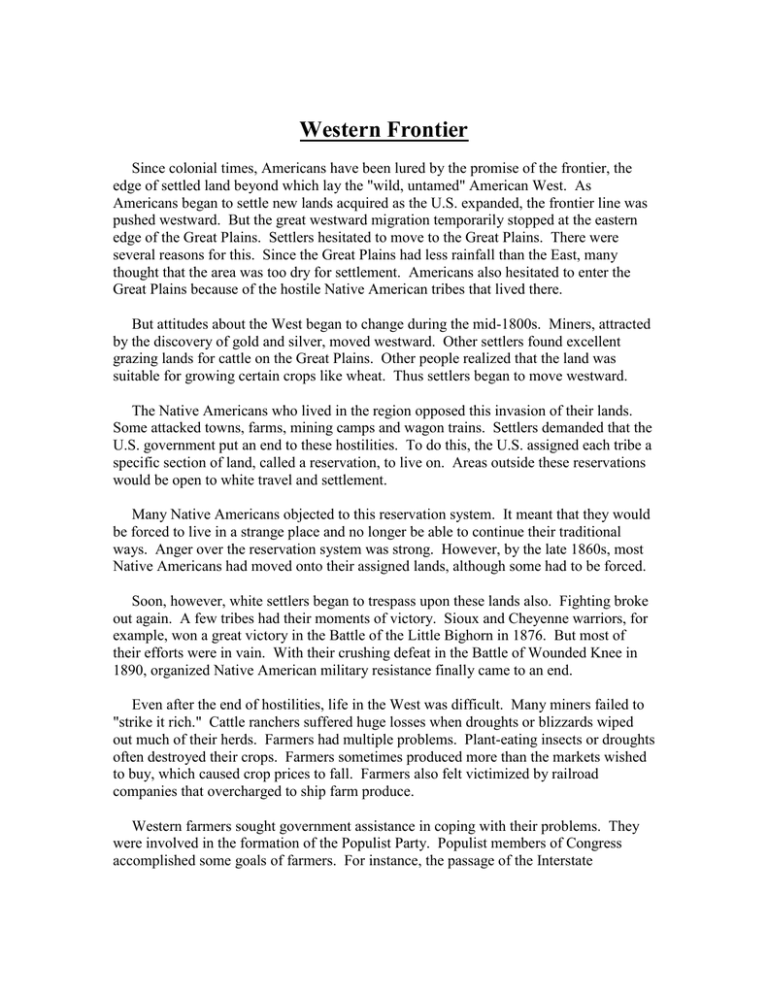
Western Frontier Since colonial times, Americans have been lured by the promise of the frontier, the edge of settled land beyond which lay the "wild, untamed" American West. As Americans began to settle new lands acquired as the U.S. expanded, the frontier line was pushed westward. But the great westward migration temporarily stopped at the eastern edge of the Great Plains. Settlers hesitated to move to the Great Plains. There were several reasons for this. Since the Great Plains had less rainfall than the East, many thought that the area was too dry for settlement. Americans also hesitated to enter the Great Plains because of the hostile Native American tribes that lived there. But attitudes about the West began to change during the mid-1800s. Miners, attracted by the discovery of gold and silver, moved westward. Other settlers found excellent grazing lands for cattle on the Great Plains. Other people realized that the land was suitable for growing certain crops like wheat. Thus settlers began to move westward. The Native Americans who lived in the region opposed this invasion of their lands. Some attacked towns, farms, mining camps and wagon trains. Settlers demanded that the U.S. government put an end to these hostilities. To do this, the U.S. assigned each tribe a specific section of land, called a reservation, to live on. Areas outside these reservations would be open to white travel and settlement. Many Native Americans objected to this reservation system. It meant that they would be forced to live in a strange place and no longer be able to continue their traditional ways. Anger over the reservation system was strong. However, by the late 1860s, most Native Americans had moved onto their assigned lands, although some had to be forced. Soon, however, white settlers began to trespass upon these lands also. Fighting broke out again. A few tribes had their moments of victory. Sioux and Cheyenne warriors, for example, won a great victory in the Battle of the Little Bighorn in 1876. But most of their efforts were in vain. With their crushing defeat in the Battle of Wounded Knee in 1890, organized Native American military resistance finally came to an end. Even after the end of hostilities, life in the West was difficult. Many miners failed to "strike it rich." Cattle ranchers suffered huge losses when droughts or blizzards wiped out much of their herds. Farmers had multiple problems. Plant-eating insects or droughts often destroyed their crops. Farmers sometimes produced more than the markets wished to buy, which caused crop prices to fall. Farmers also felt victimized by railroad companies that overcharged to ship farm produce. Western farmers sought government assistance in coping with their problems. They were involved in the formation of the Populist Party. Populist members of Congress accomplished some goals of farmers. For instance, the passage of the Interstate Commerce Act (1887) gave Congress the right to regulate railroads that crossed state boundaries. Despite the difficulties of Western life, many Americans continued to see the West as a land of opportunity. Miners, ranchers, and farmers continued to settle the Western frontier and the amount of wild, unsettled land began to diminish. By 1890 the U.S. no longer had large areas of unsettled land. The American frontier had passed into history.

